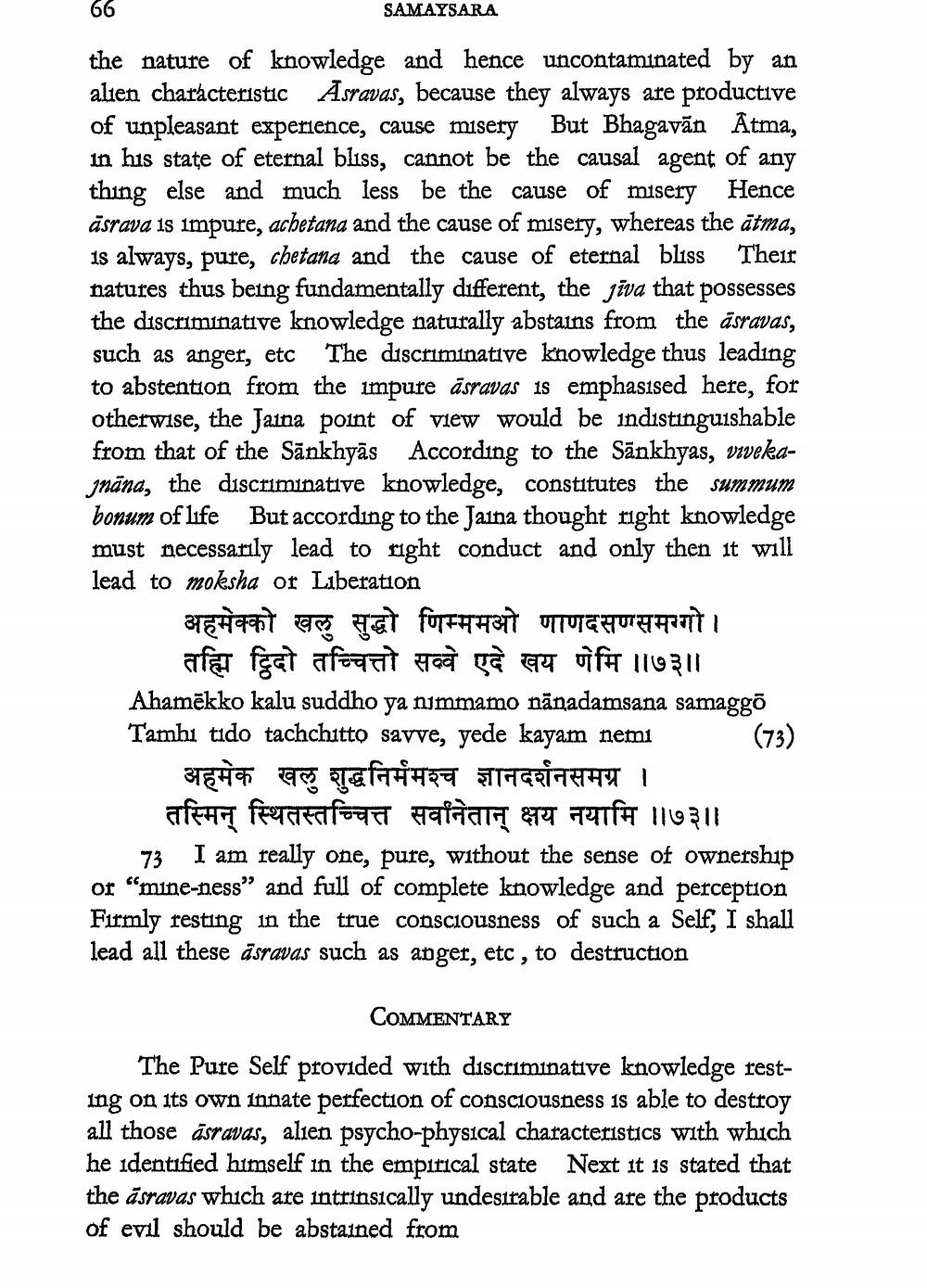________________
66
SAMAYSARA
the nature of knowledge and hence uncontaminated by an alien characteristic Asravas, because they always are productive of unpleasant experience, cause misery But Bhagavān Atma, in his state of eternal bliss, cannot be the causal agent of any thing else and much less be the cause of misery Hence asrava is impure, achetana and the cause of misery, whereas the atma, is always, pure, chetana and the cause of eternal bliss Their natures thus being fundamentally different, the jiva that possesses the discriminative knowledge naturally abstains from the asravas, such as anger, etc The discriminative knowledge thus leading to abstention from the impure asravas is emphasised here, for otherwise, the Jaina point of view would be indistinguishable from that of the Sānkhyās According to the Sānkhyas, vivekaznāna, the discriminative knowledge, constitutes the summum bonum of life But according to the Jaina thought right knowledge must necessarily lead to right conduct and only then it will lead to moksha or Liberation
अहमेक्को खलु सुद्धो णिम्ममओ णाणदसणसमग्गो।
तसि ट्ठिदो तच्चित्तो सव्वे एदे खय णेमि ॥७३॥ Ahamēkko kalu suddho ya nimmamo nānadamsana samaggo Tamhi tido tachchitto savve, yede kayam nemi (73)
अहमेक खलु शुद्धनिर्ममश्च ज्ञानदर्शनसमग्र । तस्मिन् स्थितस्तच्चित्त सर्वांनेतान् क्षय नयामि ॥७३॥
73 I am really one, pure, without the sense of ownership or "mine-ness” and full of complete knowledge and perception Firmly resting in the true consciousness of such a Self, I shall lead all these äsravas such as apger, etc, to destruction
COMMENTARY The Pure Self provided with discriminative knowledge resting on its own innate perfection of consciousness is able to destroy all those asravas, alien psycho-physical characteristics with which he identified himself in the empirical state Next it is stated that the ásravas which are intrinsically undesirable and are the products of evil should be abstained from




